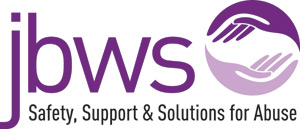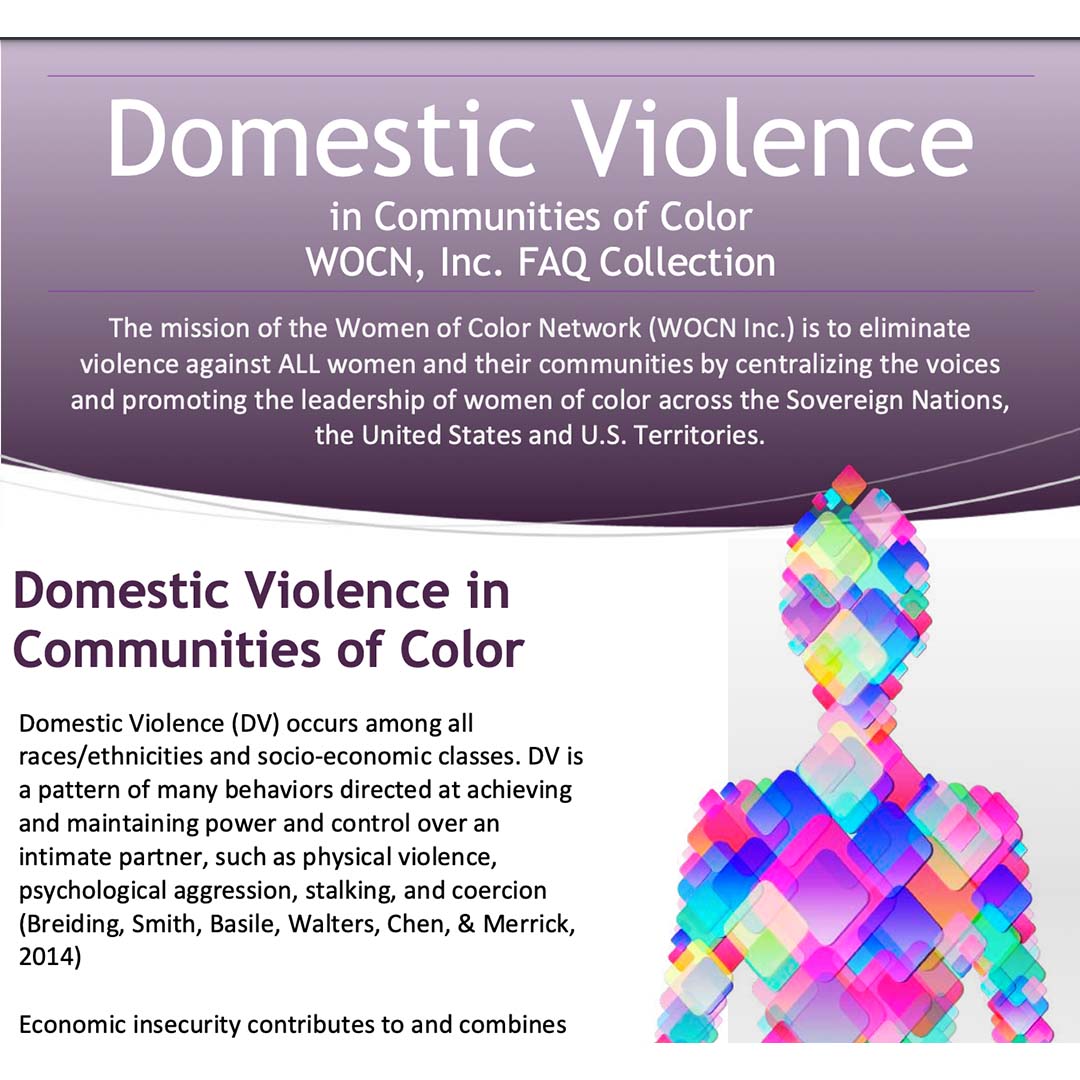What is Domestic Violence?
Domestic violence is a pattern of behaviors used to maintain power and control over another person. It can happen to anyone without regard to age, gender, sexual orientation, race, or socio-economic status. Abuse can occur in any straight, gay, or queer relationships. For more information about domestic violence and numerous type of abuse, click here.
Signs of Abuse:
Known as spiritual abuse, this form of abuse can happen in any religion or denomination. An abusive partner might isolate a person from their church or faith community, use scripture to justify abuse, degrade or belittle a person for their religious beliefs, or use their status in the faith community to intimidate them.
When a person takes another's ability to control their own reproductive system, that is known as reproductive coercion. It can present as forcing someone to get an abortion, pressuring them into becoming pregnant, sabotaging birth control, or controlling access to reproductive healthcare.
Constant criticism, guilt trips, manipulation, and exploiting insecurities are all examples of emotional abuse. Abusive partners may undermine a person's self-confidence, do things to make them feel like they're losing their mind, neglect their needs or requests, humiliate them, use guilt to manipulate, and more.
Isolation refers to any behavior that removes a person from their support group, interests, and goals. An abusive partner may keep someone from seeing who they want or doing what they want. Preventing a person from seeing others ensures that they aren’t around people who may challenge the perceptions or beliefs that an abusive partner uses to maintain control.
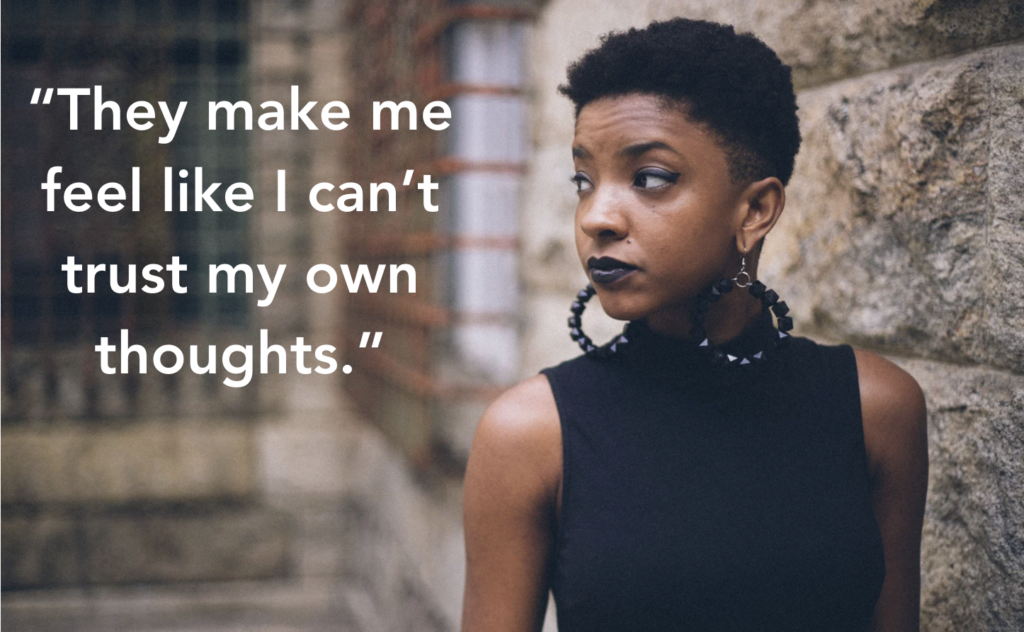
Factors to Consider:
As stated by the National Domestic Violence Hotline, by purposely denying members of the Black community "access to economic opportunities, healthcare, education, and a sense of support from government agencies, the risk factors of domestic violence are higher in these communities." Additionally, numerous factors that are specific to the Black community may impact how abuse is perceived and how readily someone experiencing it may reach out for assistance.
Faith based organizations, churches, and communities are a central part of life for many members of the Black community. According to the "Faith Among Black Americans" report by the Pew Research Center, "Black Americans are more religious than the American public as a whole" and are more likely to report that they believe in God, regularly attend religious services, and say that it's "very important" to have religion in their lives. As referenced in the report, Black churches are an instrumental source of inspiration and hope for the community.
While faith can be a source of strength, "certain religious beliefs, texts, and teachings can serve as roadblocks" for people experiencing abuse. For instance, a person may believe that seeking a divorce is against a higher power's will or that "because of their religious beliefs, they must impart forgiveness for [the person causing harm] and endure the abuse due to religious obligations under Christian, Muslim, and other faith doctrines." (Domestic Violence In Communities of Color, Women of Color Network, Inc.)
As noted by Carlos Jermaine Richards in his book "Intimate Partner Violence in the Black Church," female victims may ascribe to the belief that women are subordinate to men and that "a wife is to obey her husband in all things and rarely question his authority," which primes Black women to endure abuse. This is where faith leaders can transform a victim's life.


Information for Faith Leaders
According to the Religion and Violence e-Learning Project (RAVE), 95% of women in the church report that they have never heard a specific message on abuse preached from the pulpit."
A supportive faith leader could mean the difference between life and death for a victim of domestic violence.
While strength is typically considered a positive attribute, the stereotype that all Black women are uniquely strong and capable of overcoming anything can complicate their ability to leave an abusive relationship. According to the Women of Color Network, this belief that Black women are exceptionally strong may “increase their vulnerability and discourage some from speaking out about abuse.”
“We could be bleeding from the mouth, one arm off, but we’re still going to put that dinner on the table,” says Indiana State Rep. Vanessa Summers, who worked at the Julian Center before serving the House of Representatives. “It’s not necessarily the right thing to do. It’s just what we are in tune to do instead of taking care of ourselves first.”
This stereotype leads women to stay in abusive dynamics because they believe that they are strong enough to “handle it.”
“There’s nothing wrong with being a strong woman, but not at the point of wreaking havoc on mental and physical health,” says Cecily Johnson, director of strategic initiatives at the Domestic Violence Network. “Sure, Black women can handle pain. Sure, Black women can handle what’s thrown at them, but they should not have to. Not at the expense of our health and safety.”
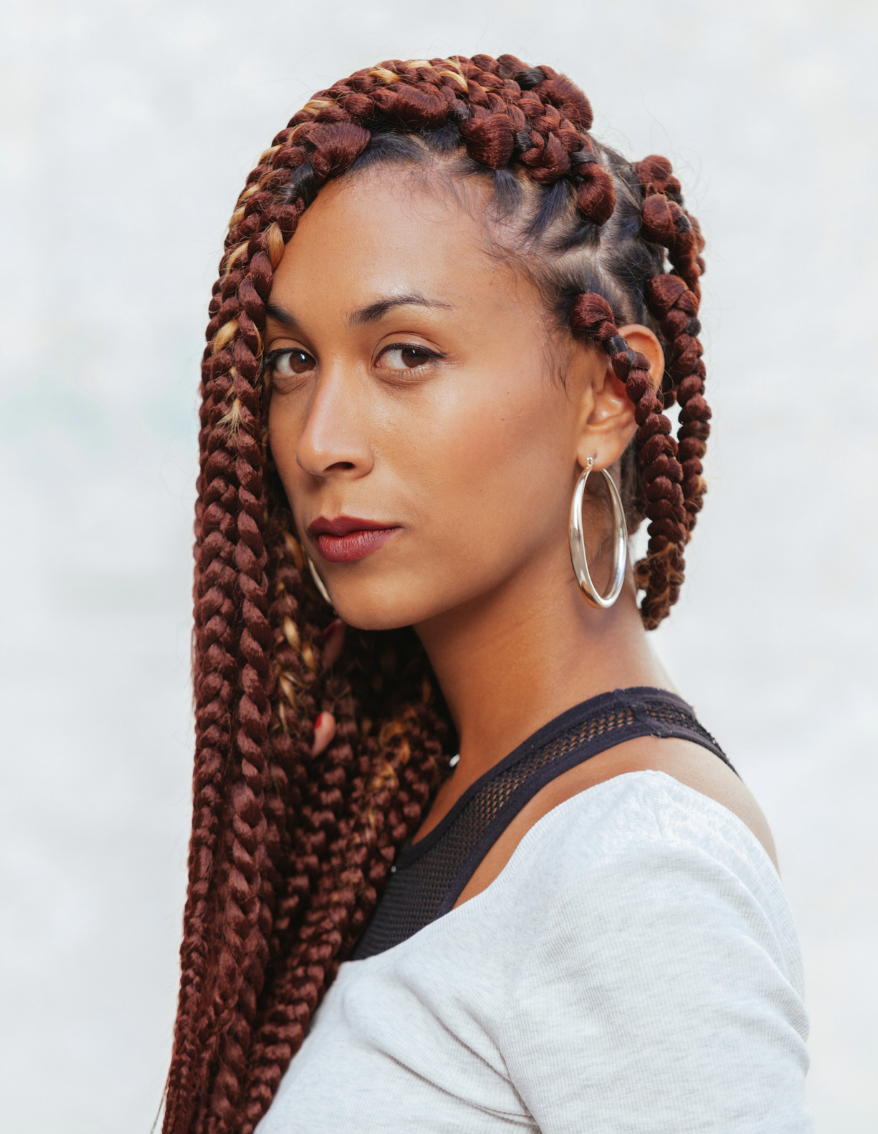


Barriers to Assistance:
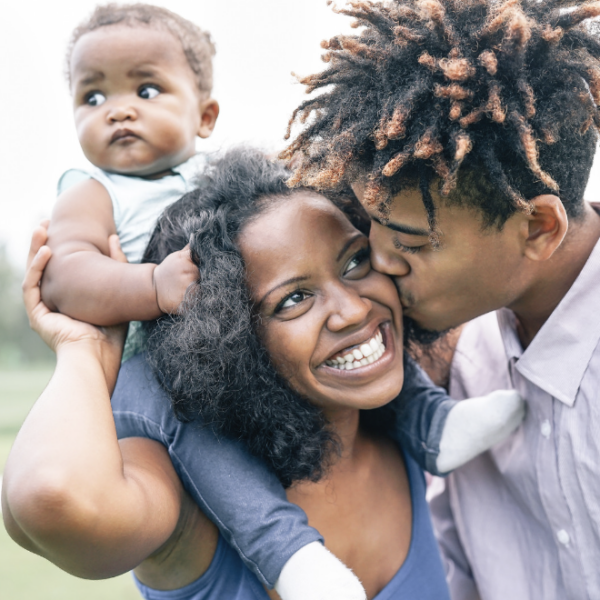

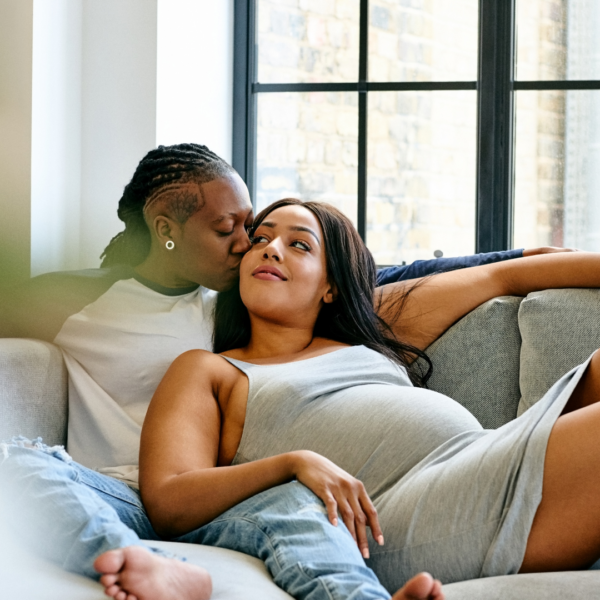
Fear of Law Enforcement:
Despite experiencing high rates of domestic violence, many members of the Black community choose not to seek assistance from law enforcement. According to the Women of Color Network, this is because Black women are “disproportionately more likely to be criminalized by the legal system” and “are routinely arrested at higher rates…when the act of violence is only in self-defense against [the person using abuse] when calling the police for assistance.”
A distrust of systems designed to help people experiencing domestic violence is one reason that Black survivors remain in abusive relationships longer than other races. This problem is particularly prevalent among Black women. "From the police to jurors, the legal system is less likely to sympathize or even process the idea of Black female victims," which could be a reason why "a Black woman is 80% more likely to be convicted for killing [the person using abuse against her]." (Black Women's Roundtable, State of Black Women in U.S. report)
Members of the Black community who are experiencing domestic violence may also be reluctant to involve law enforcement “due to fears of their partner being brutalized or killed by the police.” Black victims may be experiencing abuse but still hesitate to involve law enforcement out of concern for their Black male partners. As reported in an article published in the Proceedings of the National Academy of Sciences, “Black men are 2.5 times more likely to be killed by police than white men,” causing Black victims to feel like they may have to choose between enduring the violence against themselves or law enforcement inflicting violence against their partners.
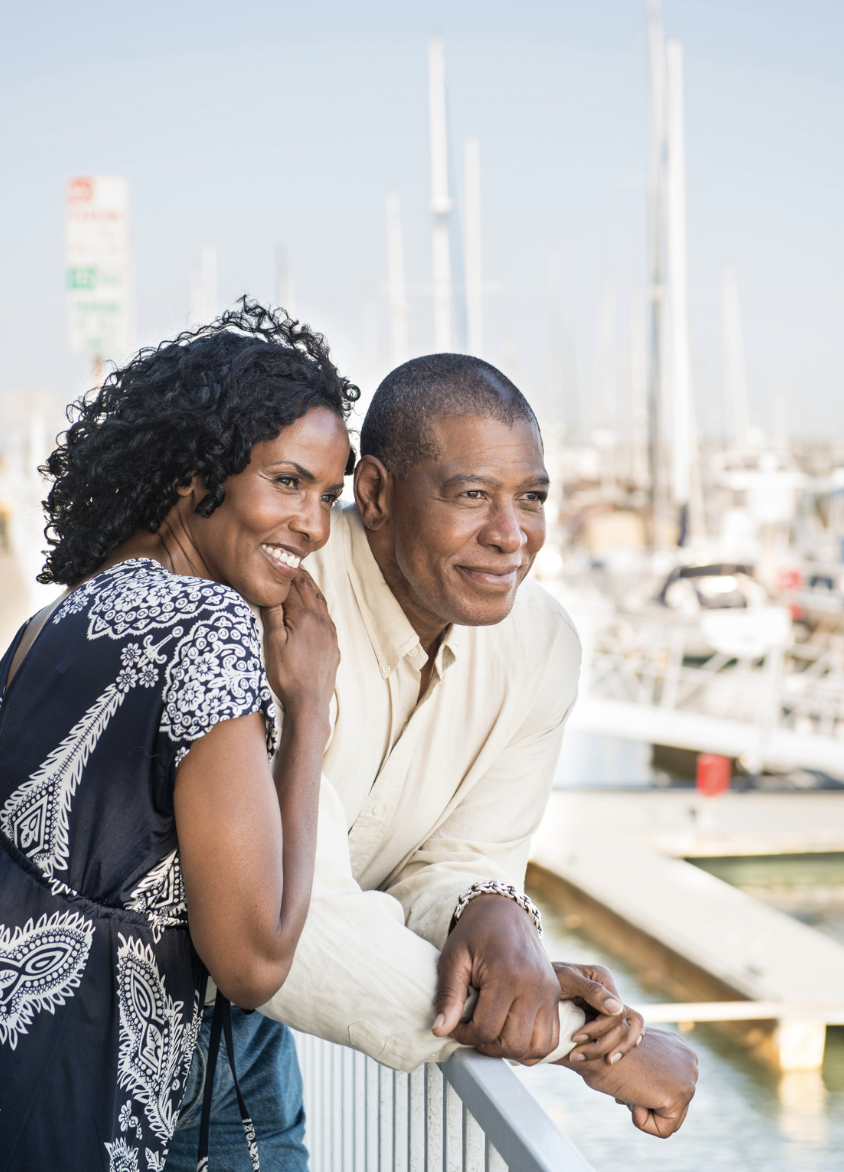
Fear of Further Stigmatization:
“African American women have a strong loyalty to the race, culture, and family,” says Reverend Dr. Selina Carter, founder of the non-profit organization Spirit of Excellence. “We live with the stigma and shame associated with domestic violence” and “are told from a young age that what happens in the home stays in the home.”
Even though murder by an intimate partner is one of the leading causes of death for young Black women between the ages of 15 and 45, many are encouraged to remain silent about the abuse they’re experiencing. They may receive little support from their communities which is “often justified by the notion that speaking up…contributes to the stigmatization of Black communities in general, and Black men in particular, as violent.” This could make Black survivors feel a responsibility to remain silent to protect their community.
Racism:
When Black survivors experience abuse, they may be reluctant to seek assistance due to the lack of providers that look like them. This is further complicated by racism and racial biases that result in Black survivors often being treated differently than a white survivor when reaching out for support. According to Jacqueline Willet, the Well-Being Services Coordinator at the Coburn Place Intake, “survivors think they won’t be believed, and they’re also scared they’re going to be attacked.” Many are fearful that they will be arrested or accused of being the aggressor due to racial prejudices.

Domestic Violence and Black Men
Despite the number of Black men who report experiencing intimate partner violence, a form of domestic violence that occurs within a romantic or sexual relationship, there is comparatively little research into their experiences. This is likely due to numerous factors including the stereotype that men are only perpetrators of domestic violence, never victims.
This prevailing belief makes it difficult for all men to seek help (Barret et al., 2019) because they report shelters and other services as unhelpful to them (Tsui, 2014). This is further complicated for Black men because of the harmful stereotype that they are aggressive and more likely to be perceived as criminals (Collins, 2009; Roth, 2004).
ALL people experiencing domestic violence can seek assistance at JBWS. You are not alone. Call our 24-Hour Helpline at 1.877.782.2873

Domestic Violence and Black Trans Women
Black transgender women experience violence at alarmingly high rates. In fact, of all the transgender and gender non-conforming people who were murdered in 2022, 54% were Black transgender women. On average, transgender women are more likely to experience intimate partner violence threats, intimidation, harassment, and injury when compared to other members of the LGBTQIA+ community.
Black transgender women also experience “transmisogynoir, a specific form of oppression rooted in anti-Blackness, cissexism, and misogyny” (Bailey & Trudy, 2018) that makes them uniquely susceptible to violence. As explained by Naomi Green, a transgender advocate, there are people “who don’t like Black people, there are men who view women as less than…and there are a number of people in the world who do not like or hate trans people… you mix all of those together, it’s a very dangerous combination."
Unfortunately, when transgender women reach out for assistance, they are frequently discriminated against, not permitted to reside in shelters, and tend to be seen as equal participants in incidents of domestic violence. “If it’s not a “female” survivor and a male perpetrator, in a heterosexual way, it’s not seen as domestic violence,” says Aaron Eckhardt, who works with the anti-violence organization BRAVO. “It’s seen as two people fighting or two people assaulting each other.”
ALL people experiencing domestic violence can seek assistance at JBWS. You are not alone. Call our 24-Hour Helpline at 1.877.782.2873
Resources:
For more information about domestic violence such as information about restraining orders, the effect of domestic violence on children, safety planning and way more, click here.
What If I Recognize Concerning Behaviors In Myself?

As is true for people regardless of their identities, people in the Black community may use abuse in their relationships.
If you recognize any abusive or controlling behaviors in yourself, then JBWS can help: jbws.org/jcnv or 973-539-7801
